On Day One | Week 3 | Pastor Ben Pierce
Understanding Creation: The Eyewitness Account
Welcome to the second part of our series on creation, where we dive deep into the fundamental truths of our faith. As we explore the eyewitness account of creation, we aim to reconcile what the Bible teaches with the scientific narratives that often challenge our beliefs. Let’s uncover the truth together!
Introduction to the Series
Welcome to our exploration of creation, where we aim to address the critical questions surrounding our faith and the narratives that challenge it. This series is designed to strengthen your understanding of the biblical account of creation while engaging with the scientific perspectives that often seem at odds with our beliefs. Together, we will navigate these complex topics to uncover foundational truths that can empower your faith.

The Attack on Faith Foundations
In recent generations, the very foundation of our faith has come under significant scrutiny. The belief that God is the Creator of the universe and everything within it has faced relentless challenges. Many now question the validity of Genesis, leading to a broader skepticism about the entirety of scripture. If we cannot hold firmly to the truth of Genesis, how can we trust the promises found in the New Testament? This isn’t merely a matter of science; it’s a spiritual battle to undermine our beliefs’ core.

The Supernatural Nature of Creation
Creation was not a mere natural event but a supernatural act of God. This distinction is crucial. We cannot rely solely on natural sciences to explain creation, as it transcends human observation and understanding. The only true eyewitness account comes from God Himself. Other narratives or interpretations fall short and often contradict the biblical account.

Defending Our Faith
As believers, we are called to defend our faith. This means understanding what we believe and why we believe it. We must be prepared to articulate our beliefs to those who question them. The spiritual battle we face today requires us to engage deeply with both scripture and science, ensuring we are not swayed by prevailing cultural narratives.
Resources for Defense
- Creation.com: A straightforward resource for creation-related information.
- Institute for Creation Research: Offers scientific research supporting creationism.
- Answers in Genesis: Provides answers to common questions about faith and science.

The Role of Science in Faith
Science and faith are often seen as opposing forces, but they need not be. A balanced understanding reveals that while science can inform our understanding of the world, it should not dictate our beliefs. The more one delves into scientific inquiry, the more one can appreciate the complexities of God’s creation. As Einstein wisely noted, a little science can lead one away from God, but a lot of science can draw one closer to Him.

The Evolutionary Narrative
The evolutionary narrative has been presented as fact in our educational systems, often overshadowing the biblical account. This narrative has permeated our culture, leading many to accept it without question. However, when we explore the scientific claims of evolution critically, we find numerous inconsistencies and assumptions that warrant further examination.
Understanding the Flaws
- The fossil record is interpreted differently by evolutionists and creationists, yet both examine the same evidence.
- Many claims in evolutionary theory lack empirical support and have been debunked over time.

The Impact of Evolution on Generations
The shift towards teaching evolution as fact has had profound effects on generations. Since the mid-60s, when prayer was removed from schools and evolution was introduced, we’ve observed declines in moral standards and academic performance. The correlation between these events and societal issues like teen pregnancy and drug use cannot be ignored.
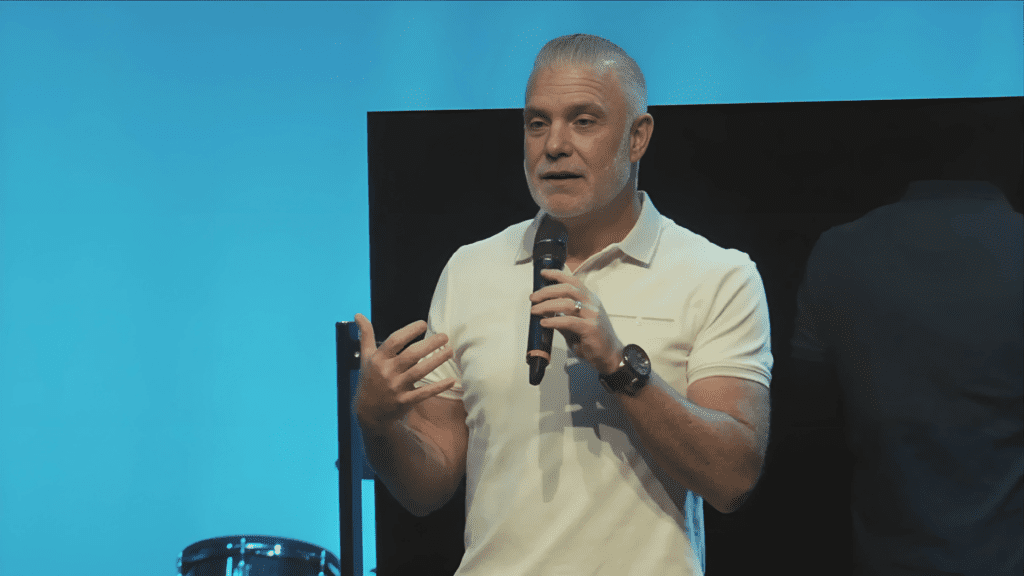
The Importance of Perspective
Your perspective shapes your understanding of the world. If your worldview is rooted in a secular paradigm, it will influence how you interpret scientific evidence. Conversely, a biblical worldview provides a framework that aligns scientific inquiry with faith. This is not merely an academic exercise; it has real implications for how we live our lives and raise our children.

The Age of the Universe
Science claims the universe is approximately 14 billion years old, primarily based on the speed of light and cosmic expansion. However, this assumption is challenged when considering that God could have created the universe fully mature. Just as Adam and Eve were created as adults, so too could the universe have been formed in a way that appears old yet was created in an instant.

The Creator Beyond Time
God exists outside of time. This concept is vital to understanding the age of the universe. The notion that the universe has been expanding for billions of years does not limit God, who sees the beginning and the end simultaneously. The question remains: Who initiated the Big Bang? This fundamental inquiry leads us back to the necessity of a Creator.

Understanding the Big Bang Theory
The Big Bang theory suggests an explosion of a singularity, yet it leaves critical questions unanswered. For instance, what initiated this explosion? Science struggles to provide a satisfactory explanation. This gap points to the need for a designer—an intelligent Creator who orchestrated the universe’s beginning.
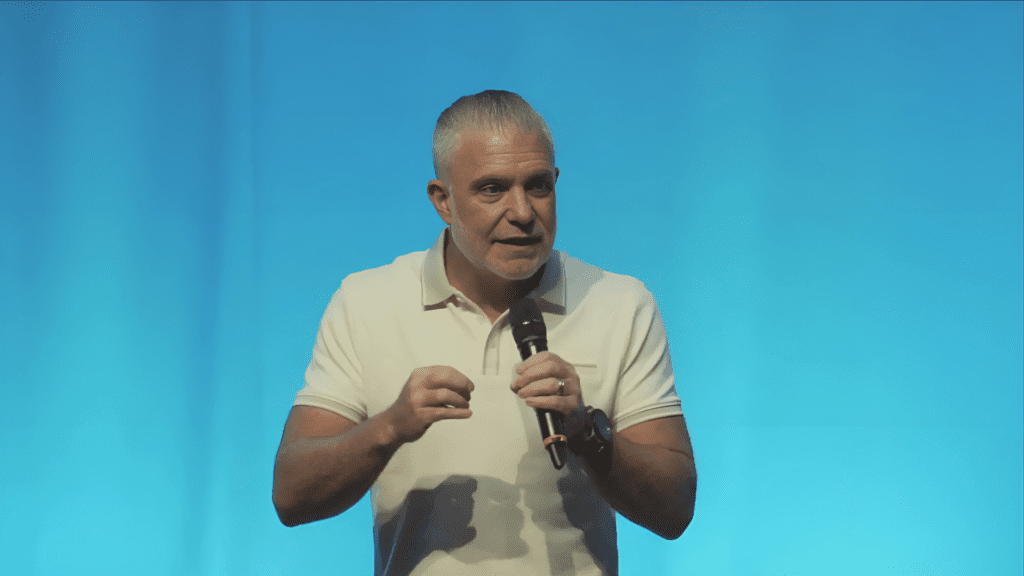
The Scientific Flaws in Evolution
As we delve deeper into the scientific claims of evolution, we uncover significant flaws. For example, the assumption that elements can evolve beyond iron is scientifically unsupported. Additionally, the lack of observed new star formation contradicts the evolutionary timeline. These inconsistencies highlight the need for a critical examination of the narrative taught in our schools.
Key Takeaways
- Many scientific claims lack empirical support.
- The same evidence can lead to vastly different interpretations based on worldview.
- Understanding our faith and the world requires deeper investigation.

Spiritual Deception and Scoffers
We live in a time rife with scoffers and skeptics, echoing the very sentiments found in the days of Noah. Just as Noah faced ridicule for his faith, we too encounter a world that dismisses the truth of God’s word. This spiritual deception is not new; it’s a tactic used since the beginning of time to undermine faith and lead people astray.
As believers, it is crucial to recognise these patterns. Today’s scoffers often mock the idea of a Creator, promoting a narrative of purposelessness. This worldview tells us we are mere accidents, without purpose or destiny. But scripture assures us that we are made in God’s image, and we have a significant role in His creation.

Time and Distant Starlight
One of the most intriguing discussions in the creation versus evolution debate revolves around distant starlight. Critics argue that the vast distances in space and the time it takes for light to travel from stars to Earth contradict a young universe perspective. However, we must remember that time is relative.
In physics, time behaves differently under various conditions. For instance, near a black hole, time slows down significantly. This leads us to consider that the speed of light may not have been constant throughout history. Could it be that the universe expanded rapidly, making it possible for light to reach us in a much shorter time frame than currently suggested? The theory of relativity opens up possibilities that challenge conventional beliefs.
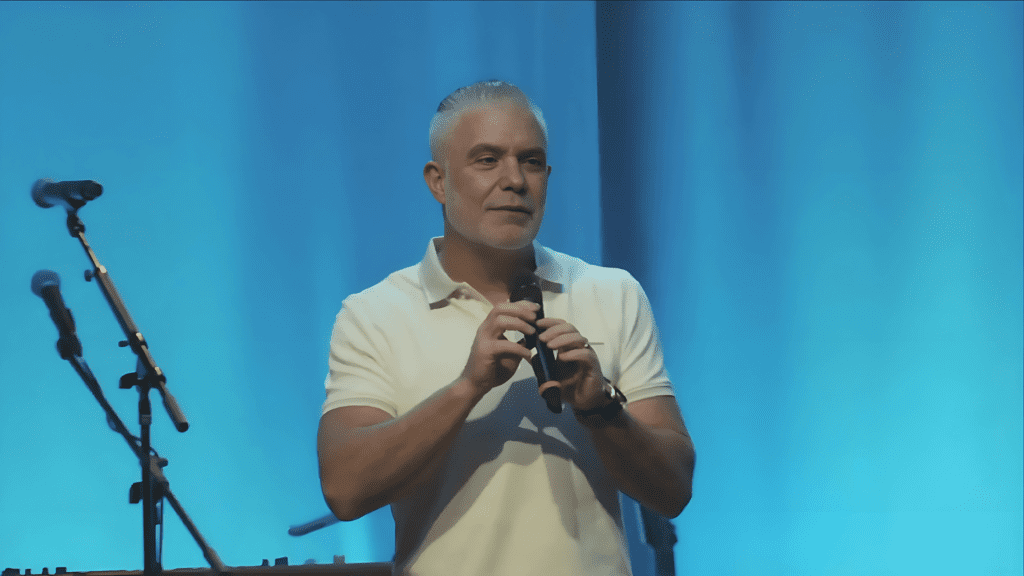
Dinosaurs and Human Existence
Dinosaurs occupy a significant place in our cultural narrative, often portrayed as creatures of a distant past, existing millions of years before humans. This narrative can disconnect many from the biblical account of creation. However, the Bible states that God created all living things in six days, which includes dinosaurs existing alongside humans.
Many assume that there is no archaeological evidence linking dinosaurs and humans. Yet, if we look closely, we find references and historical accounts that suggest otherwise. The word “dinosaur” was only coined in the 19th century; before that, these majestic creatures were often referred to as dragons in various cultures around the world.

The Biblical Account of Dinosaurs
The Bible provides descriptions of creatures that could very well be dinosaurs. For instance, the Behemoth, mentioned in the Book of Job, is described as having a tail like a cedar tree. This description does not align with that of modern-day elephants or hippopotamuses, suggesting that it is indeed a reference to a dinosaur-like creature.
Additionally, the Leviathan, another creature described in Job, could also be interpreted as a dinosaur. These references affirm that the existence of these creatures is not a myth but a part of God’s creation, acknowledging their coexistence with humans in the early days.
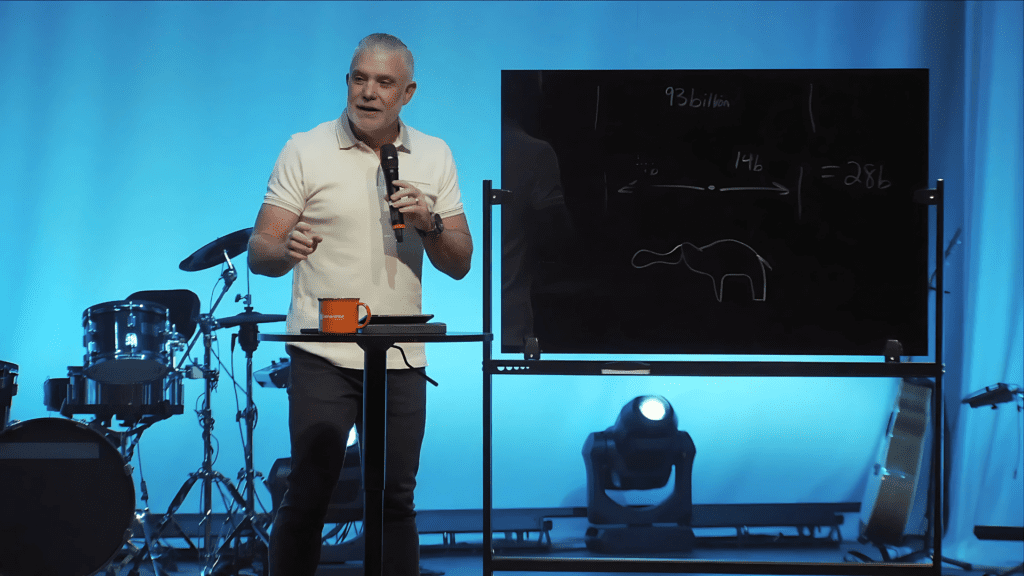
Evidence of Humans and Dinosaurs Together
Despite the scientific community’s assertion that humans and dinosaurs did not coexist, there are numerous pieces of evidence suggesting otherwise. Throughout history, various cultures have depicted dinosaur-like creatures in their art and folklore. From ancient carvings in Cambodia to petroglyphs found in North America, these artifacts provide a glimpse into a time when humans and dinosaurs shared the Earth.
Furthermore, accounts of dragon slayers in medieval literature often describe creatures that align with our understanding of dinosaurs. These stories, while often dismissed as myth, may be rooted in historical encounters with these magnificent beings.

The Fossil Record and Global Flood
The fossil record is a critical point of contention in the creation versus evolution debate. It is often cited as evidence for evolution; however, much of what we find are marine fossils, making up about 95% of the total. This aligns perfectly with the biblical account of a global flood, which would have swept across the Earth, burying vast numbers of marine organisms.
The remaining 5% of fossils include a mix of reptiles, birds, and mammals, but the number of dinosaur fossils is surprisingly low, given the supposed timeline of their existence. If dinosaurs roamed the Earth for millions of years, why do we only have around 2,100 dinosaur fossils? This discrepancy raises questions about the narrative we have been taught.

Carbon Dating and Its Limitations
Carbon dating is commonly used to determine the age of fossils and archaeological finds. However, its reliability diminishes significantly when applied to ancient specimens. The half-life of Carbon-14 is about 5,700 years, meaning it cannot accurately measure items purported to be millions of years old.
Moreover, many fossils, such as dinosaur bones, are often petrified and no longer contain carbon, making them unsuitable for carbon dating. When scientists attempt to date these fossils using other radiometric methods, results can vary widely, highlighting the inconsistencies in the dating process.
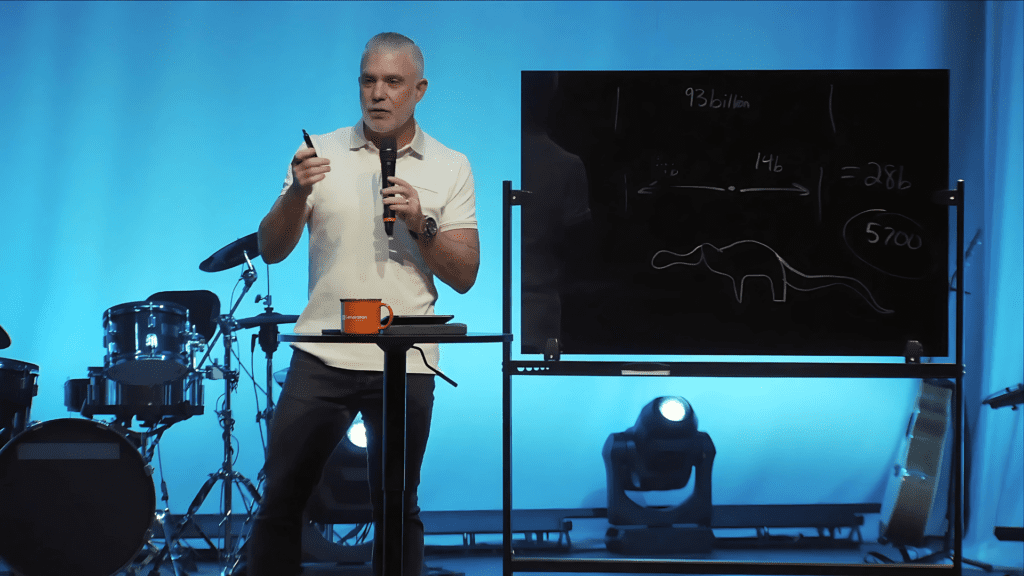
Circular Reasoning in Science
The scientific community often employs circular reasoning when dating fossils. For instance, a dinosaur bone found in a certain geological layer is dated based on the assumption that the layer is millions of years old. This method relies on previously established timelines, which may not be accurate. As a result, the narrative of evolutionary theory remains intact, despite the lack of empirical evidence supporting it.
When we consider the biblical account and the possibility of a global flood, the fossil record makes more sense. The flood would have caused catastrophic sedimentation, burying organisms rapidly, leading to the fossilisation we observe today.

Consequences of Ignoring Creation
The consequences of dismissing the biblical account of creation are profound. When we teach generations that life is a mere accident, we strip away their sense of purpose and identity. This has led to a culture where moral standards are eroded, and individuals are left searching for meaning in a world that offers none.
As believers, we must stand firm in our faith and educate ourselves and our children about the truth of God’s creation. Ignoring the implications of creation not only undermines our faith but also leaves us vulnerable to the deceptions of the world.

The Days of Noah and Modern Parallels
In Matthew 24:38, Jesus warns us about the days of Noah, drawing parallels to our current times. People were living their lives, unaware of the impending judgement. Just as Noah preached righteousness, we too must proclaim the truth of God’s word in a world filled with scoffers.
Modern society is rife with distractions and disbelief. Just as in Noah’s time, many scoff at the idea of a Creator and the reality of judgement. This is a wake-up call for believers to be vigilant, to understand the signs of the times, and to share the truth with others.
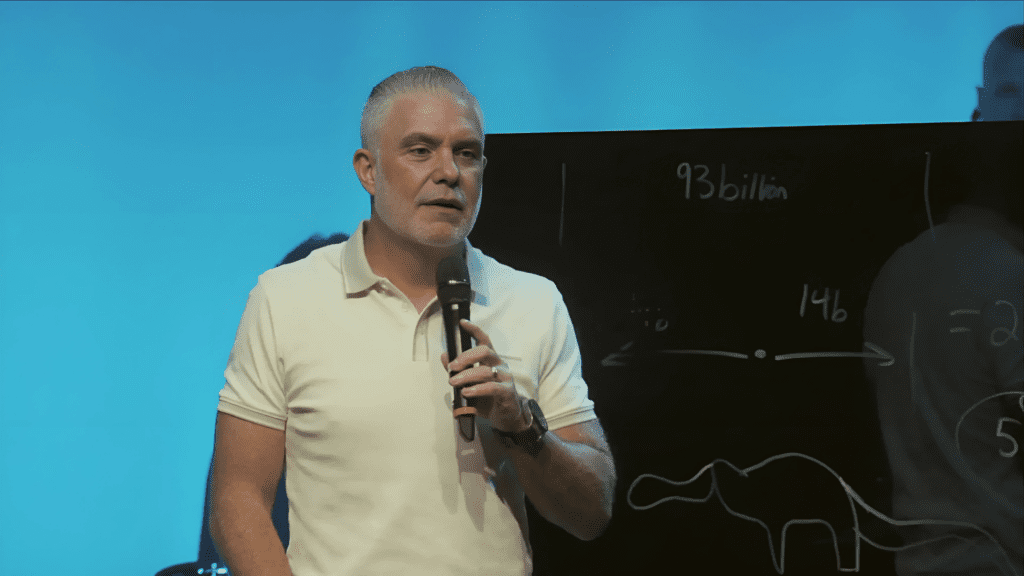
Conclusion and Call to Action
As we wrap up this exploration of creation, it is essential to remember that our faith is rooted in truth. The evidence of creation is all around us, from the intricacies of life to the vastness of the universe. We must equip ourselves with knowledge and understanding to defend our faith against the rising tide of skepticism.
Let us not be deceived by the narratives of the world. Instead, let us boldly proclaim the truth of God’s creation and the hope in Jesus Christ. Engage in study, share your findings with others, and encourage the next generation to seek the truth. Together, we can stand firm in our faith and navigate the challenges of our time.
